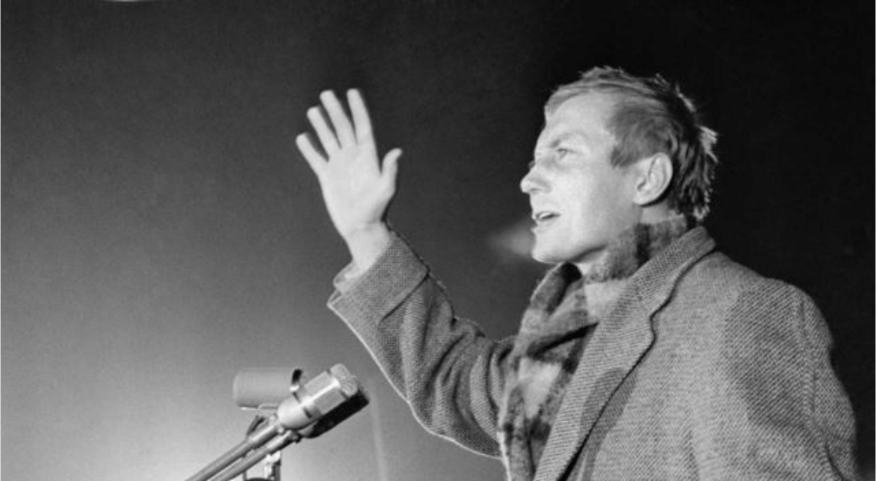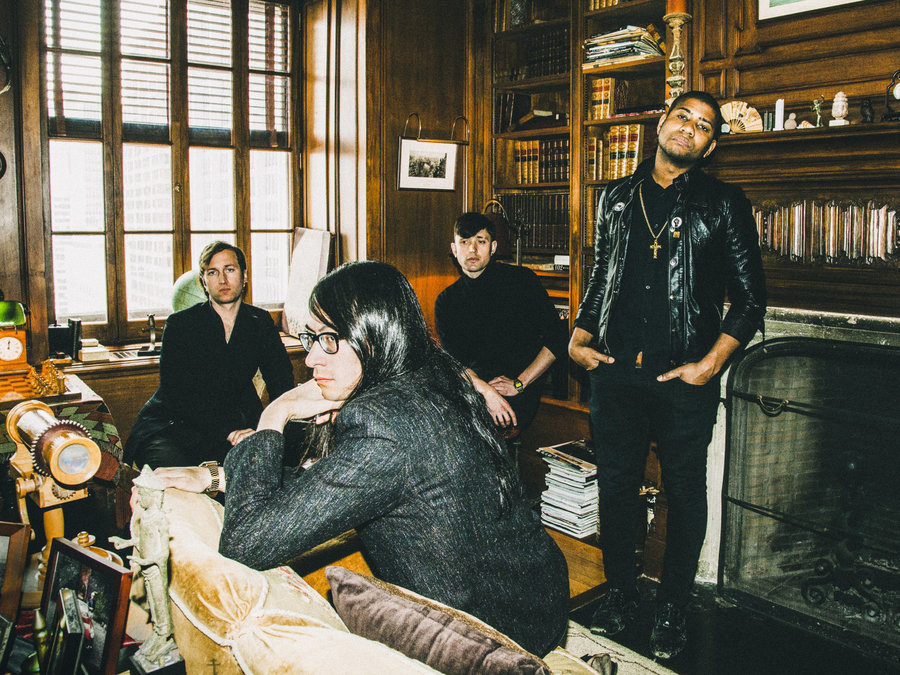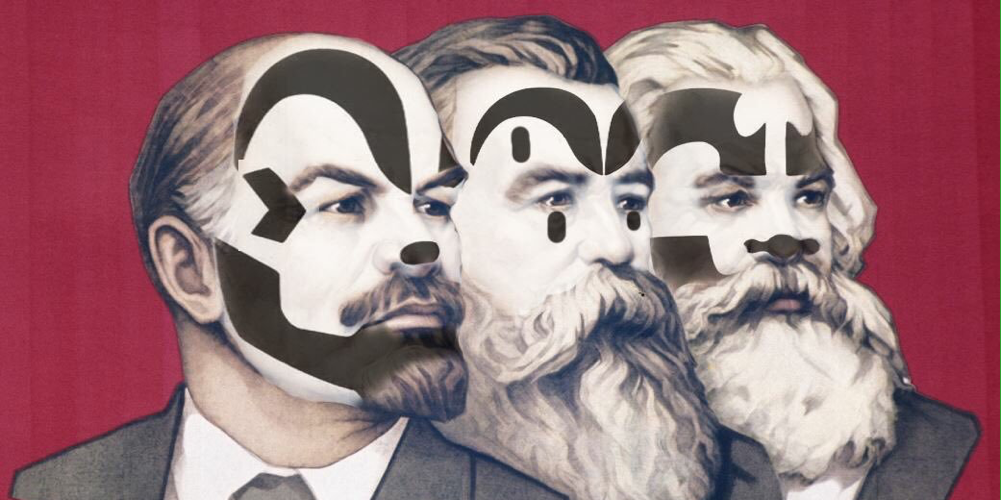My decade-long engagement as a communist propagandist had convinced me of the importance of revisiting the old question of “political art,” and the linkages and gaps it opens up between the received notions of “aesthetics” and “politics.”
Read moreNormie Socialism or Communist Transgression
The Juggalo March on Washington: Transgression as a point of entry into the world of being a Struggalo.
Red Wedge spoke with one of our close comrades and collaborators, Kate Doyle Griffiths, for what was initially to be a discussion of transgressive social practices within the context of the West Virginia uprising. What transpired, however, was a wide-ranging discussion of transgression and Left politics, social reproduction theory, Insane Clown Posse and of course, the cultural practices of the striking workers in West Virginia, the polysemic quality of Twisted Sister. The following interview was conducted in June and July 2018. It will featured in our upcoming sixth issue, which you can subscribe to by supporting us through the Red Wedge Patreon.
Read moreRiots and Reality: Sorry to Bother You and Radical Irrealism
Image by Craig E. Ross.
Capitalism is an irrational system which refuses to see itself for what it is. Like an obnoxious trust fund kid slumming it at a dive bar, it cannot help but loudly declare how ingenious and deserving it is. Accepting its arguments for how things are and how they change is to accept the argument that there is some method underneath the layers of madness, that its opulence can somehow be separated from its exploitation, that it has something other than an ever-deepening inhumanity in its future. While our dreams are deemed irrational, capitalism’s degradations are justified as science.
To grasp the significance of Sorry to Bother You is, on some level, to grasp this truth about capitalism. Boots Riley has written and directed a film that is being celebrated by the far-left and mainstream critics alike. Those familiar with Riley’s musical and lyrical work with the Coup know that he is adept at combining his unabashed revolutionary politics with a skewed, cartoon-like worldview.
Read moreI Would Like + The Bolshevik
Untitled by Ilya Kabakov.
I would like
to be born
in all countries,
to lack a passport
to the panic of the poor Foreign Ministry,
to be with all the fish
in all the oceans
Everything Is Still Ahead of Me, As It Is For My People
Yevgeny Yevtushenko reciting a poem about Vladimir Mayakovsky, 1960.
Today’s generation is raised under a dark shadow of intellectual pessimism. To be sure, it is a pessimism entirely justified by the entire experience of the 20th century as well as the 21st century up to now. But the function of a revolutionary in this is to fight, to rekindle the socialist imaginary, not because the outlook is good but because there is no other option. Our choices are to resist or be consumed. Revolt can be a joyous festival, a celebration of a future yet to be birthed. This is what Vladimir Mayakovsky[i] meant when he said, well before he shot himself, that “joy must be ripped from the days yet to come.”
Read moreDreaming of a Hundred Years Ago: Three Sonnets
Konstantin Novakov's Where are my Seventeen? in St. Petersburg (photo by Martha Cooper).
Some things, once said, can't ever be unsaid.
Some spells, once chanted, cannot be unmade,
but spark, leap over silicon barricades,
cast afterimages of brilliant red.
The spell creates the wizard. There lies he,
babe rocked by engines, watched through robot eyes,
his cradle hung from cables to the sky,
lulled fast asleep by steam trains to the sea.
Red Wedge Issue Four: Echoes of 1917
Left: from the cover of Red Wedge No. 4, "Echoes of 1917." Right: Storming the Winter Palace in Eisenstein's October.
It has been a century since the Russian Revolution. The occasion has naturally provoked all manner of commemorations. The establishment calls it an unfortunate sequence of events never to be repeated, the right spits its vicious bile at the memory of a workers’ world, and the Left, to one degree or another, celebrates and analyzes and tries to ask how to make the history come alive again. How to make the dream of total liberation, of workers power and radical democracy, into a reality.
Read moreBleakness, Hope, and History
The band Algiers.
At some point or another, every artist ponders their purpose. Do they matter? To whom and in what way? What does it even mean to be relevant? And as the world changes quickly, will their art, their music, their words, continue to have an impact?
Algiers consciously ask these questions of themselves, and are constantly aware that doing so both is and requires a struggle. One of the things that makes them such a notable act is that their consciousness of this both ideologically and structurally.
Read moreWhat is a Struggalo? Inquiry at the Juggalo March
The Struggalo Circus, a group of radical activists who are also dedicated fans of Insane Clown Posse and Psychopathic Records, were finishing their preparations before we headed to the Juggalo March. The four (nom de guerres: Ape, Dimension, Kitty Stryker, and RaiderLo) had split a hotel room in Chinatown, waking up early to don their regalia. Ape, his fully made-up face framed by bleached blonde hair and beard, looked oddly appropriate for the juggalos’ leap into DC protest politics: he wore a suit. “I dress like this all the time,” he told me. During the day he fielded at least a dozen interviews.
Read moreTrump Supermoon: Three Sonnets and an Introduction
I write formal poems because I'm a little weird in the brain, somewhere off the median on the neurodivergence spectrum. A formal poem is a place where I can express or test ideas or feelings or aesthetics without the profound exposure of a public article. Usually what happens when I write a sonnet is a phrase will occur to me that echoes in that meter and I will think about it. Sometimes that phrase is within the first line, and sometimes it is buried deep within the poem. Each of my poems has started with such a seed, uttered by a friend or within my own thoughts.
Somehow in poems or in any sort of art some parts of society find it acceptable to express feelings or beliefs that one cannot express elsewhere. And that is what I do in my poems.
Read moreRed Wedge (Print) is Going Quarterly
There are big changes coming to Red Wedge’s publication and posting schedule. Starting with issue three (out in July) on “The Return of the Crowd," Red Wedge will be going quarterly.
Since the founding of Red Wedge in 2012 there has been a mushrooming and further development of left-wing and explicitly socialist publishing. As readers may know, we have spent much of the past eighteen months discussing our way forward, and feel that our current moment, our current environment, demands that Red Wedge professionalize itself.
Read moreThe Petrified and the Proletarian (part 2)
Left: Ta-Nehisi Coates. Right: Richard Wright
Ta-Nehisi Coates' sharp criticism of Bernie Sanders on racial justice generally, and the issue of reparations in particular, has kicked up some interesting discussion and heated debate. Left responses to Coates piece – and Coates’ subsequent responses to his critics – have foregrounded once more the importance of thinking through the relationship between “race” and “class” in the imagination and the political strategy of an emancipatory social movement. The importance of such discussions, though clearly relevant to the current Presidential campaign, extends well beyond it, revealing and potentially informing the state of the radical imagination, as expressed in artistic works, critical discourse, as well as social movement culture, tactics, and strategy.
Read moreArt + Revolution
The following is the lead editorial from Red Wedge's first full print issue, which is being sent to the printers shortly. Copies of Issue One can be ordered at the Red Wedge shop.
* * *
In August 2012 a handful of Chicago-based Marxist art junkies launched Red Wedge. The moment was distinctive: Tunisia, Egypt, Occupy Wall Street, the Indignados in Spain, general strikes in Greece and South Africa. Our aim was to try to pull together the artistic and creative flourishes that came with the social and political upheavals: the music and poetry of Tahrir Square, the painting, sculpture and performance of Occupy. It was impossible to ignore the transformation of public space when working-class people took it over. The static reminders of authority and alienation became living breathing carnivals of resistance. It was our belief that this indicated a new audience eager to discuss the aesthetics of rebellion and ready to explore the intersection between art and radical theory. We hoped our website might be a humble contribution to building and cohering a new cultural resistance.
Read more







